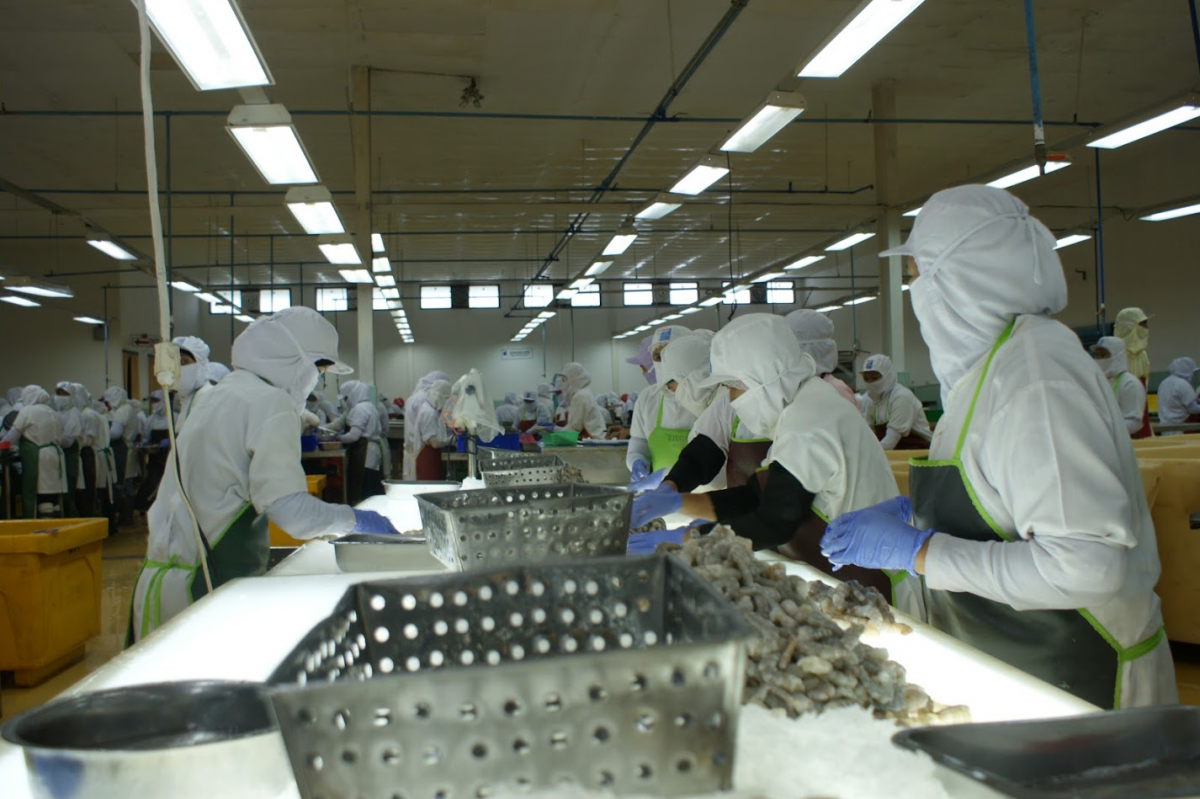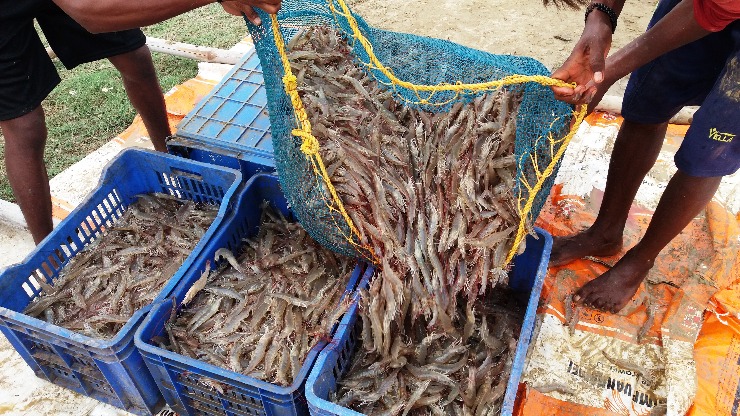In addition to the upcoming national dialogue, Seafood Trade Intelligence Portal (STIP) and Solidaridad will hold regional stakeholder meetings and develop an awareness campaign about proper antibiotics use by shrimp farmers.

High-level dialogue
The dialogue will bring together key stakeholders from both India and the European Union. The aim is to create a shared understanding of the current situation and to develop a strategy to limit the use of antibiotics in the Indian shrimp sector in order to comply with applicable regulations. Additionally, STIP and Solidaridad will organize several meetings between European buyers, Indian exporters, delegates of the European Union and European embassy representatives.
More frequent inspections, higher costs and still non-compliance
Over the last 10 years, the EU Directorate-General for Health and Food Safety (DG Sante) has been increasingly focused on Indian shrimp. In 2016, the EU changed the necessary number of fish exports inspected from 10% to 50%, among other actions taken to control the export of antibiotic-contaminated shrimp to the EU. This slows the import process and raises the price of Indian shrimp in the EU. Despite these additional precautions, EU inspections still found incidents of non-compliance, triggering an EU audit and the possibility of new measures, such as 100% inspections or even an overall ban. STIP has completed a review of the EU inspection results which is available on request.

EU delegation looking for continuation of shrimp trade
Ivan Bartolo, president of the European Seafood Importers and Processors Alliance (SIPA), believes that the dialogue will facilitate “continuation of the trade between India and the EU. SIPA has a mandate to improve seafood safety and security and to ensure that standards are maintained into the future.”
Frans Zeeman, who will be representing the Dutch association of fish importers and Sjoert Moors, shrimp purchase manager for Seafood Connection, said they look forward to joining the meeting. “I trust we can find a way to come up with a widely supported agreement, which should contribute to maintain and improve the shrimp trade between India and Europe,” Moors said.
They hope to ensure that all Indian shrimps are farmed and produced according EU safety measures, to reduce the current strict inspection regime for exports and brainstorm about a “green ticket policy” to facilitate efficient exports for companies with a good track record. Importer Klaas Puul wants to emphasize that “India remains a very important country for future imports to Europe. We are very confident that with united forces, we will develop a sustainable trade with reliable partners.”
Nordic CEO, Lars Hermes Olsen, said that working with the Indian shrimp farming industry to help them live up to EU regulations and standards “is of utmost importance for Nordic Seafood A/S. We see the support from the EU Seafood Importers in this matter as a first step towards a more sustainable shrimp farming sector in India.”
The EU buyer delegation will further consist of importers from the Netherlands, Belgium and the UK. Other European buyers are welcome to join and can contact Willem van der Pijl, director of STIP, for more information.
India International Seafood Show, Goa, 28-29 January 2018.
To join the dialogue, please contact: willem@seafood-tip.com
STIP and Solidaridad are organizing the dialogue with support from industry leaders including:
-
Embassy of the Kingdom of the Netherlands in New Delhi
-
European importers Klaas Puul, Seafood Connection, and Nordic
-
Colruyt (retailer)
-
Marine Product Export Development Authority (MPEDA)
-
Seafood Exporters Association of India (SEAI)
-
Seafood Importers and Processors Alliance (SIPA)
-
The Dutch Fish Importers Association (ViV)
-
The Danish Seafood Association
Willem van der Pijl, director of STIP, is encouraged by the dedication of these leaders for improving the aquaculture supply chain. “The meetings in Goa will only be the start. With Solidaridad in India we will also organize two regional dialogues in Odisha and Andhra Pradesh and start a campaign to make farmers aware about the consequences of using antibiotics in shrimp farming,” he said.
Learn more about Solidaridad's programme for sustainable aquaculture
